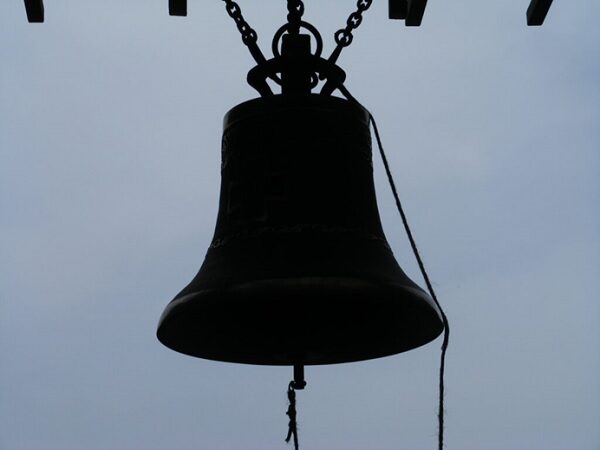The Gospel and Political Expediencies (2)
7 June 2023[Previous post: https://pemptousia.com/2023/06/the-gospel-and-political-expediencies/]
In this secularized environment for politics, and perhaps also for the institutionalized Church, protest movements are constantly arising whenever the State is considered to be denigrating Orthodox religious sentiments and ethos through its decisions; and the official Church administration is held responsible for not reacting to the desired extent. The next step is to progress from protest to the organized assumption of political authority, so that the people concerned will be on the inside and thus be in a position to influence matters positively, while also blocking negative political decisions. And since minority party groupings aren’t in a position to achieve what they’ve promised to their ‘gentle’ voters, they play out their role in a sui generis and, indeed, slogan-filled confession of the faith based on a peculiar form of ecclesiastical ideology.
The ideological or obsessive starting-point of such movements is usually, on the one hand, partial or total identification of faith in God with faith in the nation, to the point where the demand is made that the Church be exclusively devoted to the service of the national ideology (ethno-phyletism); and, on the other, discontent with its position on the handling of current problems. One example of this recently was the corona virus, where the State was condemned for atheism and persecution of the faithful while the Church as an institution was considered to have deserted Orthodoxy and to have subjected itself to policies of anti-ecclesiastical expediencies.

All of this, however, naturally exposes the Orthodox faith and Orthodox Church irredeemably, especially when such groupings attempt to assume theological, pastoral and ecclesiastical roles through their extreme, facile, pietistic, legalistic, ethno-phyletic and ideological interpretations and conclusions. The result of this is that politicians inside and outside the corridors of power, as well as journalists and others who look for opportunities to sling mud, are given the opportunity to exercise ill-intentioned criticism, which is aimed, unfortunately, not so much at the party faithful themselves, but rather at the Church.
The worst evil, of course, is the endemic, arrogant view that the Church as an institution is not up to its task, in particular to confessing, powerfully and at every opportunity, its Orthodox theological message. And that it hasn’t the leadership stature to withstand what are seen as prevarications, compromises and special dispensations, these being interpreted as concessions and a betrayal of Orthodoxy. A concomitant of this stance is a self-declared assumption of the historical responsibility for filling the void and restoring Orthodoxy.
However, presenting and spreading the truth of the Gospel, which is interpreted and formulated exclusively by the Church, cannot be an issue for politicians, but only for Church leaders, who are the agents of the Church’s mission to spread the word of God and to cure its members of the wounds of sin. As regards the content of evangelization, this is, by nature, radical, authentic, uncompromising, selfless, unique, enduringly constant and, above all, impartial and unifying.
In no way can this be the message and political practice of any ‘Orthodox’ party entities, simply because their very presence is an indication of division and fragmentation within the unified body of the Church. This is even more so when the struggle to achieve power is accompanied by spiritual blackmail, plausible deception of voters, lightweight and conflicting arguments, behind-the-scenes compromises and machinations and concealment of real motives. Moreover, at no time has morality ever prevailed in politics; only expediencies conforming to a specific, underlying moral view have done so. Typical of the selfishness and blackmailing contained in the message of religious parties, is the following quote from the leader of the Greek Christian Democracy party: ‘Christians who are not members of this party will not be proper Christians; they’ll be formal Christians, and, in reality, materialists belonging either to the right or the left wing’.
So, is it possible for there to be ‘Orthodox Christian politics’. Certainly, if we take the Gospel to be a political manifesto, a book of policies with decidedly ‘right-leaning’ remedies. And if we believe that political programs can constitute theological or moralistic treatises. But this answer was already given in the last century by Western secularized (and ideologized and politicized) Christianity, when what was known as ‘Political Theology’ was dominant. As it has faithfully followed Christ and the Early Church, the Eastern Orthodox Church has never entertained the idea of functioning as a political agent. It has believed that Christians don’t need to belong to some Christian party in order to assert and confess their Christian identity and to fulfill their Christian ‘duties’. The same is true of the Church itself. There’s no requirement for it to be transformed into a political agency in order for it to carry out its task in contemporary society.






